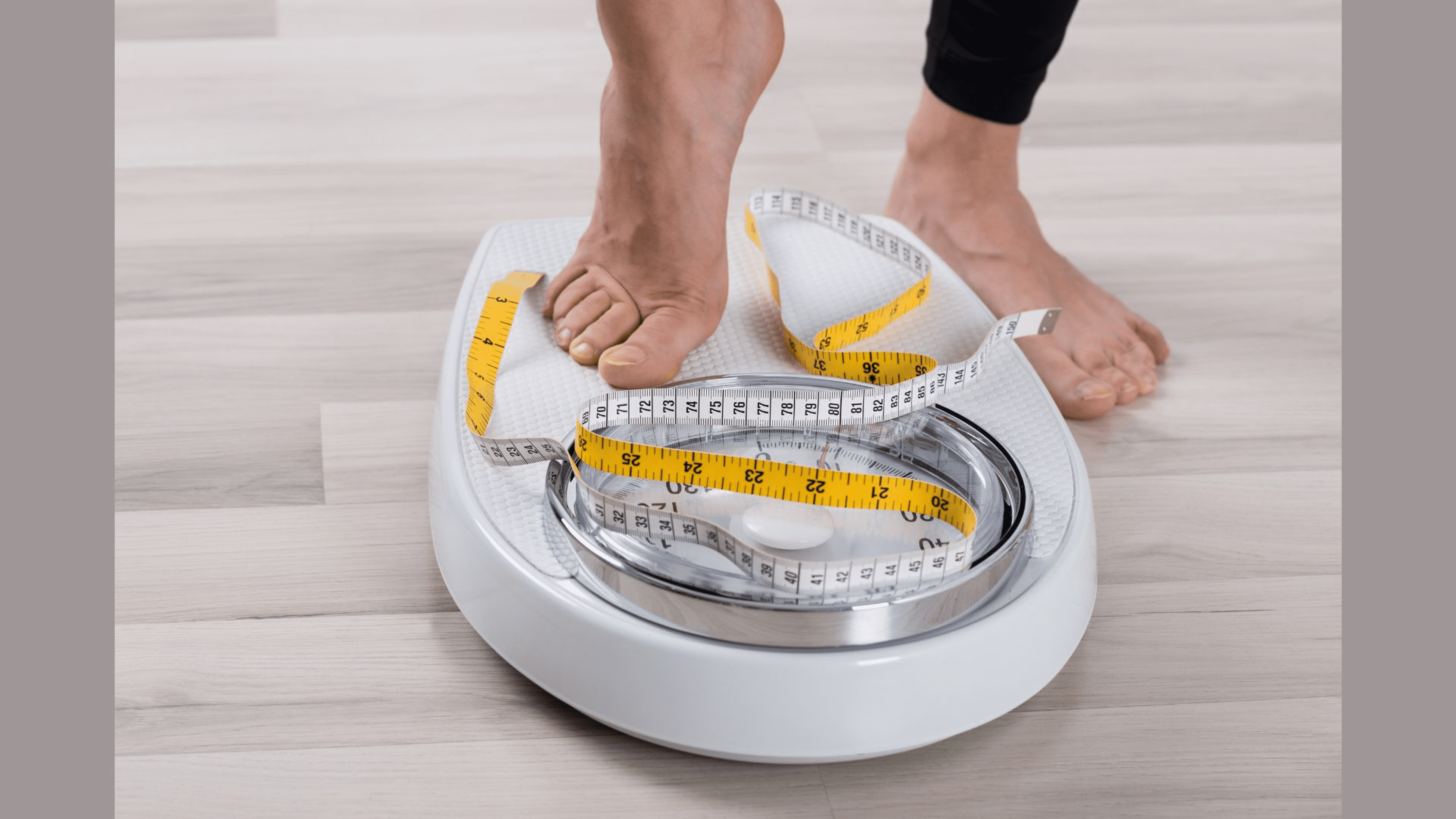When Is The Best Time to Weigh Yourself

Understanding Weight Fluctuations
Human body weight is not constant; it fluctuates throughout the course of a single day. Many people weigh themselves frequently, and the number on the scale can often be misleading. It is crucial not only to understand what influences these daily weight fluctuations but also to understand when and why you weigh what you do.
Factors Contributing to Weight Fluctuations
A wide variety of variables can lead to weight fluctuations. These considerations include:
-
Food and liquid intake: Consuming food and beverages adds to your body's total mass, which is reflected in your weight on the scale. Some foods, especially those high in sodium or carbohydrates, can also cause water retention, leading to temporary weight gain.
-
Exercise: Physical activity can lead to both short and long-term weight fluctuations. During the actual workout, you may lose weight due to fluid loss (sweating). However, in the long run, exercise can lead to muscle gain, which might increase your weight due to muscle being denser than fat.
-
Time of day: Our bodies follow a daily rhythm often called the "circadian rhythm" that affects many physiological functions, including our weight. Most people are at their lightest in the morning after waking up and after a night's sleep (and before eating breakfast).
How Timing Affects Weight Measurements
The scale doesn't just reflect fat or muscle gain. Part of the day-to-day weight fluctuations could be due to variations in your body's water content or the food in your stomach waiting to be digested. For instance, it has been consistently shown that people weigh the least in the morning, especially after using the bathroom.
This is why consistency in the time of day when you weigh yourself is key. To get the most reliable day-to-day weight measurements, weigh yourself at the same time each day—ideally, first thing in the morning, after eliminating but before eating or drinking anything. This provides a more consistent and accurate picture of your weight status.
Myths vs. Reality in Weight Tracking
There are many misconceptions when it comes to tracking weight. Some believe that you should weigh yourself daily to stay motivated and on track, while others argue that daily weigh-ins lead to obsession and unhelpful stress. The truth is, both stances can be correct—it all depends on your personality and how seeing daily weight fluctuations impacts you.
What is consistently true, however, is that if you are tracking weight, consistency in timing and conditions is more important than the scale's absolute number. The goal is to identify long-term trends in your weight.
Remember, your weight is just a number, and it is not the sole indicator of your health or fitness. Do not let a number on a scale dictate your happiness or self-worth.
Understanding weight fluctuations is crucial to setting sustainable health goals. With a clear understanding of the factors contributing to weight fluctuations over time, you can better interpret the numbers on the scale and make informed decisions about your health and fitness journey.
The Best Time to Weigh Yourself for Accurate Results
When considering the best time to weigh yourself for accurate results, numerous factors come into play, many of which are intrinsically related to our daily habits and biological rhythms. Over the years, it has been observed, upon meticulous scientific research and validation, that weighing oneself first thing in the morning, after using the bathroom and before eating or drinking, gives the most consistent and accurate results.
The rationale behind this timing lies in the daily ebb and flow of our body's processes. Overnight, while we are at rest, our bodies are nonetheless busy metabolising the previous day's intake of food and drink. By morning, most of this process is complete, and your body's weight should represent a more stable baseline, without the fluctuation caused by meals, exercise, or hydration levels.
Benefits of Morning Weigh-ins
Morning weigh-ins offer several advantages. Firstly, you've just gone through a fasting period while asleep, with no food or liquid intake interfering with your weight. Secondly, after expelling any waste material from your body, you're at your lightest, and this weight is relatively free of the moment-to-moment fluctuations that occur throughout the day.
Monitoring our weights at other times can be a misleading affair, owing to numerous factors. For instance, our bodies continually lose and gain weight due to water intake, food consumption, and through sweat and breath – processes that occur all day long, making weight measurement inconsistent and unreliable. In contrast, a morning weigh-in provides a more controlled benchmark, as most of these variables are minimal or non-existent.
Consistency in Weighing Conditions
A vital part of getting accurate weight measurement is to maintain consistency in weighing conditions. This extends not just to the time of day, but also what you're wearing and even the scale's location.
Understanding these seemingly minor details' significance can go a long way in attaining an accurate reflection of your weight, thus enabling you to keep a better track of any changes. While it may be tempting to weigh yourself after a vigorous workout or before bedtime, those times deliver readings distorted by fluctuating hydration levels, among other factors, making them less reliable gauges of your actual weight.
The Role of Clothing and Scale Placement
Every gram counts when it comes to weight measurement. Therefore, it's advised to weigh yourself naked or in minimal clothing to obtain a more accurate reading. Clothes can add extended weight, and wearing different outfits each time you weigh yourself could introduce extra variability.
Furthermore, where your scale is placed can also make a difference. Scales work best on hard and flat surfaces. The uneven or soft surface may lead to inaccurate readings due to the irregular pressure applied to the scale. Therefore, it's advisable to ensure you weigh yourself at the same place every time, preferably somewhere with a hard and flat surface.
In closing, the pursuit of accurate weight measurement intertwines with understanding your body's natural rhythms, consistency in your actions, and attention to seemingly minor influencers, like clothing and scale placement. Building a relationship centered around awareness and consistency with your scale might just yield the thorough understanding of your body you've been seeking, giving you a powerful tool in your journey towards optimum health.
Tips for Consistent and Meaningful Weight Tracking
When embarking on a journey of weight loss or maintenance, consistency matters not only in diet and exercise but also in keeping track of your progress. Acquiring meaningful insights about your weight change over time needs a systematic recording of weights. We will walk through essential steps to accurately interpret your weight changes.
Establishing a Regular Weighing Routine
Consistency is key, especially when establishing a weighing routine. It would be best if you were as consistent as possible with the variables that can affect your weight, including the time of day you weigh yourself, the type of clothing you wear (or don't wear), and the scale you use. Here are a few tips:
-
Choose a specific time of the day. It's recommended to weigh yourself first thing in the morning after using the bathroom and before eating or drinking anything. This way, you are in a relatively controlled and consistent physiological state, eliminating variables like food and liquid intake that can affect your weight momentarily.
-
Always weigh yourself on the same scale. Even slight variances between scales can affect results, so using the same scale will ensure you're monitoring relative changes. Always place your scale on a hard, flat surface for accurate readings.
Choosing and Using the Right Scale
The scale you choose is as important as the routine you establish. Various scales out there range from purely mechanical ones to high-tech digital scales that measure body fat percentage, muscle mass, and more in addition to weight.
-
Stick to a reliable scale. It doesn't have to be the most high-tech one on the market, simple and reliable scales can serve your purpose as long as they are accurate and consistent.
-
Check your scale's accuracy occasionally by weighing an object you know the weight of, like a 5-pound dumbbell or a bag of flour.
Interpreting Long-term Weight Trends
Having a regular weighing routine and using a reliable scale will provide you raw data. But the key to meaningful weight tracking lies in interpreting these trends over time.
-
Don't fret over daily fluctuations. Weight can fluctuate daily due to a range of variables such as hydration status, salt intake, menstrual cycle in women, and even weather. The important thing is the long-term trend and not these daily changes.
-
Use a weight tracking chart or app. Visualising your progress can provide a clearer picture of your trajectory and may help keep you motivated.
-
Always interpret your weight in conjunction with your lifestyle habits, dietary changes, exercise regime, and overall feeling of wellness. Body weight is just one aspect of health and wellness and shouldn't be the sole determinant or goal.
In conclusion, successful weight tracking is more about consistency, using the right tools, and a balanced interpretation of data than it is about the daily number you see when you step on the scale. Understanding and implementing these concepts will give you a meaningful perspective on your weight loss or maintenance journey.
In Summary
In this post, we have elucidated the reasons behind daily weight fluctuations and how to understand and account for them. Fundamentally, weight fluctuations are influenced by several factors, including food and liquid intake, exercise, and the time of day.
Grasping the effects of timing on weight measurements is key for accurate weight tracking. Consistency in weighing conditions like timing, clothing, and scale placement profoundly impacts your weight readings. Morning weigh-ins after using the bathroom and before any intake of food or drink provide the most consistent and accurate results.
Moreover, we have debunked some myths about weight tracking and emphasized the importance of focusing on long-term trends, not daily numbers. Further, an understanding of factors impacting accurate weight measurement and tips for consistent and meaningful weight tracking, with an emphasis on establishing a regular routine, choosing the right scale, and interpreting long-term weight trends, is essential.
Plan of Action
To implement your understanding of weight fluctuations and accurate measurement, you should:
-
Acknowledge weight fluctuations: Accept that your body weight can vary throughout the day based on various factors. Avoid putting too much weight (pun intended) on the differences you see from day to day.
-
Establish a weighing routine: Consistency is crucial. Weigh yourself at the same time each day, ideally first thing in the morning after using the bathroom but before eating or drinking. Use the same scale located in the same place, and, if possible, wear similar clothes—or none at all.
-
Record your weight regularly: Keep track of your weight over time so you can monitor trends. Use a weight tracking tool or app for convenience and visualization.
Action Steps
-
Purchase a reliable scale: If you don't already own one, invest in a good scale. It doesn't have to be expensive or fancy. What matters most is its accuracy and reliability.
-
Pick your weigh-in time: Decide when to weigh yourself (remember, first thing in the morning is usually best) and stick to this schedule as closely as possible.
-
Start tracking: Begin recording your weight daily. You can use a physical notebook or digital app—whatever works best for you.
-
Review and reflect: After a certain period (e.g., every month), review your weight records and reflect on your progress. Pay attention to long-term trends. Remember, your focus should not be on day-to-day variations but on the general inclination of your weight trend over time.
Understanding your body's weight fluctuations and finding a consistent, accurate weight measurement routine contributes significantly to a healthier, mindful, and sustainable fitness journey. Remember, weight is just one indicator of health, and it should not hold the power to determine your happiness or self-worth.




